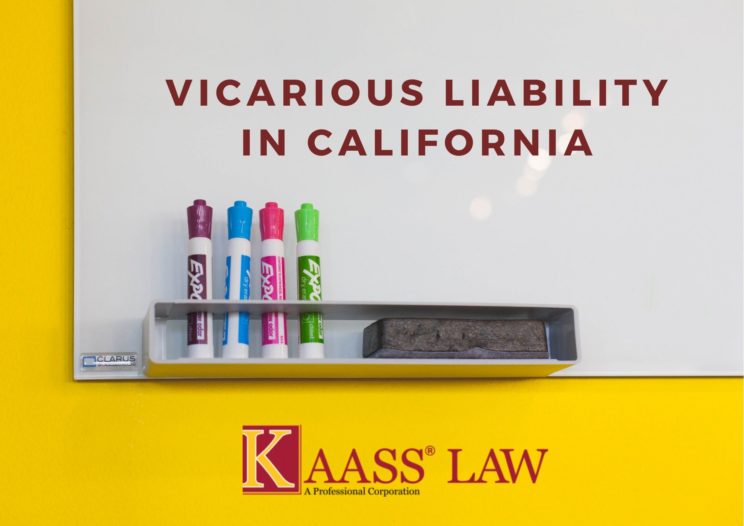What is Vicarious Liability in California?
Generally, a person is legally responsible only for his own recklessness, negligence, or intentionally wrongful actions, though there are some exceptions to the rule.
Under the theory of vicarious liability, certain parties can be held liable for injuries that they didn’t cause through their own actions. The doctrine of vicarious liability is limited to relationships where there is a legal connection between the parties and the responsible party has control over another entity.
Vicarious liability is entitled to provide injured parties with another source of recovery.
Relationships That Involve Vicarious Liability
Employer-Employee Relationships
The employer can be held accountable for an employee’s negligent actions. This is referred to as respondeat superior law.
According to CACI 3700:
- Employer is responsible for harm caused by the wrongful conduct of his employee while acting within the scope of their employment
- Employee is always responsible for harm caused by his own wrongful conduct, whether or not the employer is also liable.
The employer can be held liable in case the plaintiff is able to prove the following:
- Employee caused harm to the plaintiff at-issue
- Employee was acting within the scope and course of his employment
CACI 3720 provides some guidance to what is considered “scope of employment”
- It is reasonably related to the sort of work tasks for which the employee was hired
- It is reasonably foreseeable given the nature of the employee’s work responsibilities
Principal-Agent Relationships
California Civil Jury Instruction 3700 provides a concise and clear explanation of the basics of vicarious liability. One can authorize another one to act on his behalf in transactions with third parties. This kind of relationship is called “agency.”
The person giving the authority is called the “principal” and the person to whom the authority is grated is called the “agent.” A principal can be held liable for the actions of his agents, joint venture members or partners, and, in some cases, independent contractors. The principal actor can be an individual or company. The liability extends to the principal for actions that are within the scope of the agent’s powers and duties to act on the behalf of the principal.
Normally, any intentional tort isn’t considered to be within the scope of an agent’s duties, and a principal won’t be held accountable unless the principal clearly approved the conduct.
Parent-Child Relationships
In some cases, California laws impose liability on parents for damage or injuries to people or property caused by their children. Vicarious liability of a parent for the actions of his child is applicable under the following conditions:
- Child engaged in willful misconduct
- Child drove a parent’s vehicle and the damages or injuries resulting from the diver’s negligent conduct
- Parent permitted the child to use a firearm and the child’s actions caused injuries to another person
Vicarious Responsibility for Co-conspirators’ Acts
Under California law, a member of a conspiracy can also be held liable for crimes committed by his co-conspirators. The plaintiff must prove that the co-conspirators’ actions were foreseeable and were committed with the intent of furthering the objective of the conspiracy.
Do you have more questions about vicarious liability in California? If so, KAASS Law would be happy to provide you with additional information any time! Give us a call at (310) 943-1171 or fill out the form below and one of our team members will contact you!

